2016 New Faculty for the Division of Social Sciences
Anthropology
Hanna Garth, assistant professor
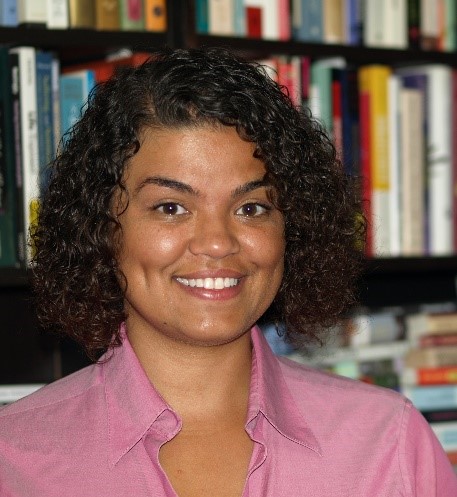 Hanna Garth is a sociocultural and medical anthropologist specializing in the anthropology of food. She received her Ph.D. in anthropology from UCLA in 2014, and an MPH focused in global health from Boston University in 2006. Prior to UC San Diego, Garth had been a University of California President’s postdoctoral fellow at UC Irvine, and a Mellon Mays fellow. Her work addresses issues of inequality and structural violence, with regional interests in Latin America, the Caribbean and the United States. She currently has active research projects in Cuba and Los Angeles. In Cuba, she has conducted research on household food acquisition practices and the changing Cuban food system. In Los Angeles, she has been researching the food justice movement and the organizations that work toward increasing healthy food access in low-income areas. Both projects address issues of race and gender-based inequality. Garth is also developing new research on obesity and related chronic diseases in Havana and Santiago de Cuba. In the Department of Anthropology, Garth will develop graduate- and undergraduate-level courses that explore the ways in which structural inequalities are embodied and the relationship between the diseased body and mental health, as well as develop undergraduate courses on food and global health, and food and identity.
Hanna Garth is a sociocultural and medical anthropologist specializing in the anthropology of food. She received her Ph.D. in anthropology from UCLA in 2014, and an MPH focused in global health from Boston University in 2006. Prior to UC San Diego, Garth had been a University of California President’s postdoctoral fellow at UC Irvine, and a Mellon Mays fellow. Her work addresses issues of inequality and structural violence, with regional interests in Latin America, the Caribbean and the United States. She currently has active research projects in Cuba and Los Angeles. In Cuba, she has conducted research on household food acquisition practices and the changing Cuban food system. In Los Angeles, she has been researching the food justice movement and the organizations that work toward increasing healthy food access in low-income areas. Both projects address issues of race and gender-based inequality. Garth is also developing new research on obesity and related chronic diseases in Havana and Santiago de Cuba. In the Department of Anthropology, Garth will develop graduate- and undergraduate-level courses that explore the ways in which structural inequalities are embodied and the relationship between the diseased body and mental health, as well as develop undergraduate courses on food and global health, and food and identity.Byung “Dredge” Chu Kang, assistant professor
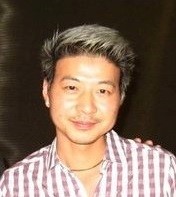 Dredge Kang received his Ph.D. in anthropology in 2015 and global health MPH in 2016 from Emory University. He was a postdoctoral fellow in women, gender and sexuality studies at Washington University in St. Louis prior to appointment at UC San Diego. Kang’s research broadly focuses on race, gender, sexuality, class and transnationalism. His primary emphasis include the anthropology of love, beauty, sex work, sexual health, structural violence and Hallyu (the Korean Wave) studies. His geographic specialization is Southeast Asia (Thailand), with particular attention to inter-Asia and Asian diaspora connections. Kang has conducted research on the construction of Asian identity and interracial relationships in Thailand, examining how middle-class differentiation structures desires for East Asian partners rather than Caucasian ones. This work addresses how racial preferences in romantic relationships are socially conditioned. The research was sponsored by the National Science Foundation and Wenner-Gren Foundation. His current research explores how popular culture from Korea and Japan are being embodied in everyday Thai gender and sexual practices. Kang will offer undergraduate and graduate courses on race, gender variance, sexuality, global health and medical anthropology.
Dredge Kang received his Ph.D. in anthropology in 2015 and global health MPH in 2016 from Emory University. He was a postdoctoral fellow in women, gender and sexuality studies at Washington University in St. Louis prior to appointment at UC San Diego. Kang’s research broadly focuses on race, gender, sexuality, class and transnationalism. His primary emphasis include the anthropology of love, beauty, sex work, sexual health, structural violence and Hallyu (the Korean Wave) studies. His geographic specialization is Southeast Asia (Thailand), with particular attention to inter-Asia and Asian diaspora connections. Kang has conducted research on the construction of Asian identity and interracial relationships in Thailand, examining how middle-class differentiation structures desires for East Asian partners rather than Caucasian ones. This work addresses how racial preferences in romantic relationships are socially conditioned. The research was sponsored by the National Science Foundation and Wenner-Gren Foundation. His current research explores how popular culture from Korea and Japan are being embodied in everyday Thai gender and sexual practices. Kang will offer undergraduate and graduate courses on race, gender variance, sexuality, global health and medical anthropology.Isabel C. Rivera-Collazo, assistant professor
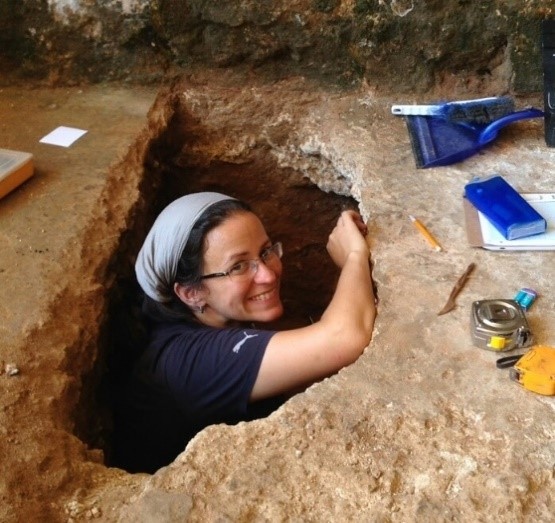 Isabel Rivera-Collazo is an environmental archaeologist who specializes in geoarchaeology, archaeomalacology, coastal and marine processes, maritime culture, and climate change, with regional interests in Puerto Rico, the Caribbean Basin and the Neotropics (pan-Caribbean region), Israel, and the eastern Mediterranean. She received her Ph.D. on environmental archaeology from the Institute of Archaeology, University College London. Prior to UC San Diego, Rivera-Collazo was a research fellow of the Center for Applied Tropical Ecology and Conservation (CATEC) and the Laboratory of Environmental Archaeology at the University of Puerto Rico, Rio Piedras Campus. Her research focuses on the effect that human activity has over island ecosystems through time, as well as how people have responded to climatic and environmental change in the past. Rivera-Collazo’s work focuses on resilience and adaptation, investigating what decisions enhance or reduce adaptive success. Taking an applied approach, Rivera-Collazo also works with local communities in the quest for understanding the current and expected impacts of climate change, including threats to coastal heritage. In the Department of Anthropology, Rivera-Collazo will develop undergraduate and graduate courses in environmental archaeology, archaeology and climate change, and archaeology of the Caribbean, as well as contribute to teaching core courses in the anthropological archaeology curriculum.
Isabel Rivera-Collazo is an environmental archaeologist who specializes in geoarchaeology, archaeomalacology, coastal and marine processes, maritime culture, and climate change, with regional interests in Puerto Rico, the Caribbean Basin and the Neotropics (pan-Caribbean region), Israel, and the eastern Mediterranean. She received her Ph.D. on environmental archaeology from the Institute of Archaeology, University College London. Prior to UC San Diego, Rivera-Collazo was a research fellow of the Center for Applied Tropical Ecology and Conservation (CATEC) and the Laboratory of Environmental Archaeology at the University of Puerto Rico, Rio Piedras Campus. Her research focuses on the effect that human activity has over island ecosystems through time, as well as how people have responded to climatic and environmental change in the past. Rivera-Collazo’s work focuses on resilience and adaptation, investigating what decisions enhance or reduce adaptive success. Taking an applied approach, Rivera-Collazo also works with local communities in the quest for understanding the current and expected impacts of climate change, including threats to coastal heritage. In the Department of Anthropology, Rivera-Collazo will develop undergraduate and graduate courses in environmental archaeology, archaeology and climate change, and archaeology of the Caribbean, as well as contribute to teaching core courses in the anthropological archaeology curriculum.Cognitive Science
Steven P. Dow, assistant professor
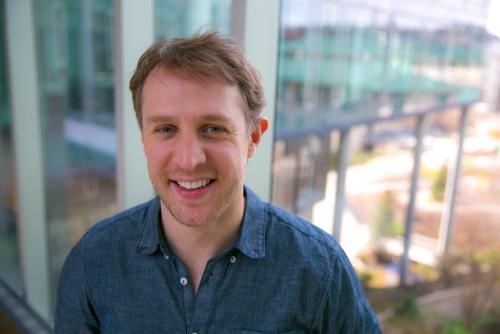 Steven Dow received a Ph.D. in human-centered computing from the Georgia Institute of Technology in 2008, followed by a two-and-a-half year postdoctoral fellowship in computer science at Stanford University. Prior to UC San Diego, he was assistant professor at Carnegie Mellon University in the Human-Computer Interaction Institute from August 2011 to December 2015. His research interests include human-computer interaction, social computing, design education and creativity-support tools. Dow has received numerous grants from the National Science Foundation, including a CAREER Award in 2015. He was co-recipient of Stanford's postdoctoral research award and the Hasso Plattner Design Thinking Research Grant. Dow will offer graduate courses in crowdsourcing and design thinking, and core undergraduate classes in interaction design, service design, social computing and prototyping.
Steven Dow received a Ph.D. in human-centered computing from the Georgia Institute of Technology in 2008, followed by a two-and-a-half year postdoctoral fellowship in computer science at Stanford University. Prior to UC San Diego, he was assistant professor at Carnegie Mellon University in the Human-Computer Interaction Institute from August 2011 to December 2015. His research interests include human-computer interaction, social computing, design education and creativity-support tools. Dow has received numerous grants from the National Science Foundation, including a CAREER Award in 2015. He was co-recipient of Stanford's postdoctoral research award and the Hasso Plattner Design Thinking Research Grant. Dow will offer graduate courses in crowdsourcing and design thinking, and core undergraduate classes in interaction design, service design, social computing and prototyping.Philip J. Guo, assistant professor
Lara M. Rangel, assistant professor
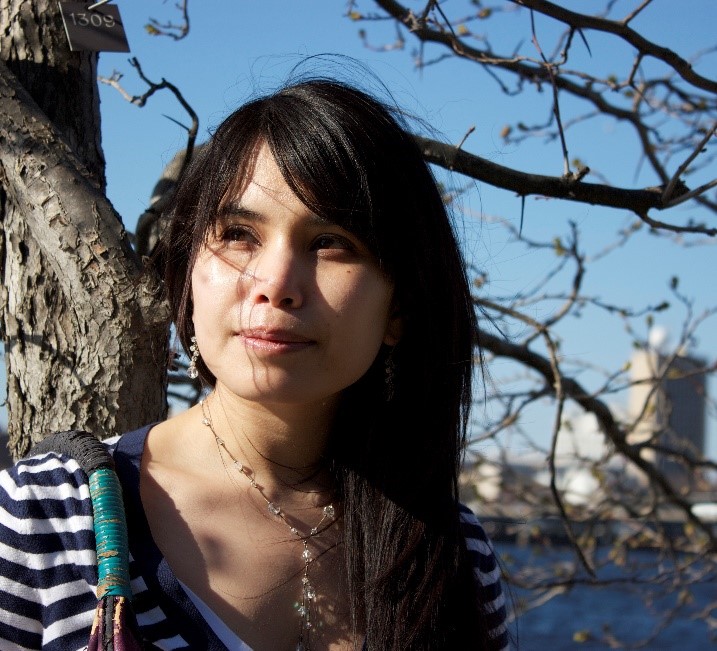 Laura Rangel received her Ph.D. in neurosciences from the University of California San Diego in 2012. She was subsequently an NSF Cognitive Rhythms Collaborative postdoctoral fellow at Boston University and MIT, where she organized a collaborative group that studied brain oscillatory dynamics and emerged as a leader in learning and memory research. She then became a University of California Chancellor’s postdoctoral fellow at the UC San Diego, where she studied the relationship between local circuit level processes in the brain and extracranially measured brain rhythms. Her research tests whether rhythmic activity in the brain is important for coordinating the processing of information in organized networks of neurons. Her goal is to provide new insight into the single-cell interactions underlying the occurrence of brain rhythms measured in rodents and humans. Her teaching experience is highly interdisciplinary, and she has taught both basic and complex topics in systems neuroscience to students and researchers with backgrounds in biology, psychology, mathematics, philosophy, physics, and computational neuroscience. Moreover, she has demonstrated a commitment to promoting diversity of perspective in the sciences, and has worked hard towards the inclusion of underrepresented groups.
Laura Rangel received her Ph.D. in neurosciences from the University of California San Diego in 2012. She was subsequently an NSF Cognitive Rhythms Collaborative postdoctoral fellow at Boston University and MIT, where she organized a collaborative group that studied brain oscillatory dynamics and emerged as a leader in learning and memory research. She then became a University of California Chancellor’s postdoctoral fellow at the UC San Diego, where she studied the relationship between local circuit level processes in the brain and extracranially measured brain rhythms. Her research tests whether rhythmic activity in the brain is important for coordinating the processing of information in organized networks of neurons. Her goal is to provide new insight into the single-cell interactions underlying the occurrence of brain rhythms measured in rodents and humans. Her teaching experience is highly interdisciplinary, and she has taught both basic and complex topics in systems neuroscience to students and researchers with backgrounds in biology, psychology, mathematics, philosophy, physics, and computational neuroscience. Moreover, she has demonstrated a commitment to promoting diversity of perspective in the sciences, and has worked hard towards the inclusion of underrepresented groups.Communication
Patricia Ahn, assistant professor
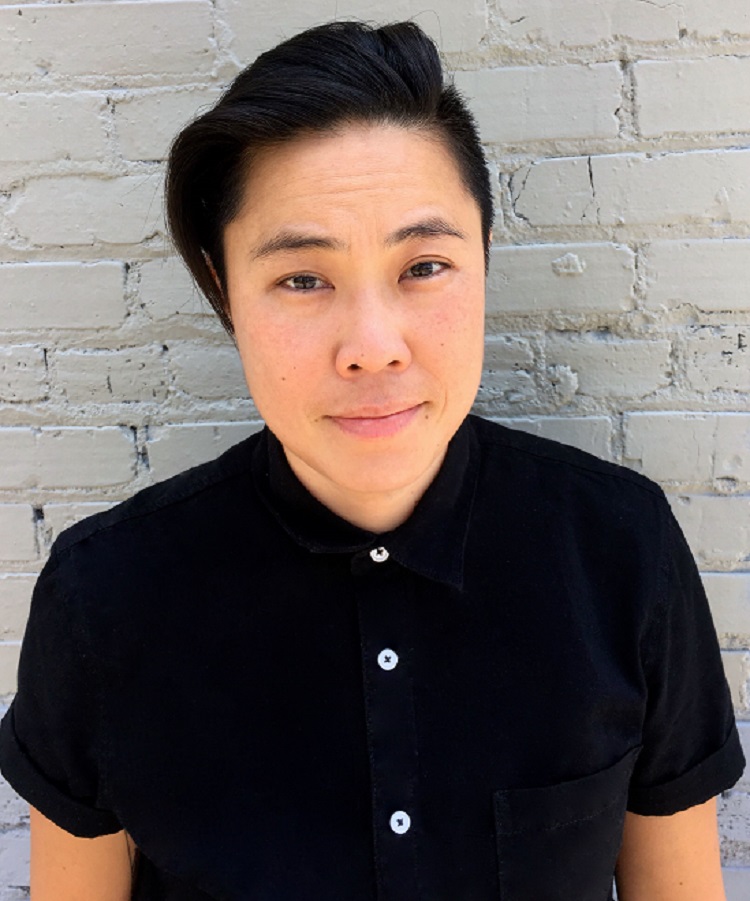 Patricia Ahn earned her Ph.D. in critical studies from the School of Cinematic Arts at the University of Southern California, where she developed a research and teaching interest in Asian/Asian American studies, contemporary Korean and Korean-American political economic and cultural history, postcolonial and feminist theory, cultural theories of global media with an emphasis on Hallyu (the Korean Wave), and digital storytelling and transmedia activism. Drawing from her background as a community organizer and commercial producer, her work integrates interdisciplinary media research, critical media practice and community-based models of teaching. Ahn’s current project engages in an interdisciplinary study of the political economy and visual politics of South Korea’s pop music export industry, or K-Pop. She focuses on how the global marketing of Korean idol and idol groups, through music videos and other promotional content released by Korean record labels and governmental agencies, is reshaping cultural imaginaries about Korea in the post-millennium, especially in the United States. Attending to a marked growth in interest in K-Pop as an object of study among undergraduate and graduate students, she is designing a multimodal online teaching companion in addition to producing a traditional scholarly manuscript. Prior to her appointment at UC San Diego, Ahn was as an Andrew W. Mellon postdoctoral fellow in the Center for Digital Liberal Arts at Occidental College, where she taught experimental practice-based courses on media and social movements and digital storytelling. She will teach courses in critical media production, Asian and Asian-American media, and cultural theories of media globalization, and looks forward to pushing students to explore experimental modes of scholarly production and research.
Patricia Ahn earned her Ph.D. in critical studies from the School of Cinematic Arts at the University of Southern California, where she developed a research and teaching interest in Asian/Asian American studies, contemporary Korean and Korean-American political economic and cultural history, postcolonial and feminist theory, cultural theories of global media with an emphasis on Hallyu (the Korean Wave), and digital storytelling and transmedia activism. Drawing from her background as a community organizer and commercial producer, her work integrates interdisciplinary media research, critical media practice and community-based models of teaching. Ahn’s current project engages in an interdisciplinary study of the political economy and visual politics of South Korea’s pop music export industry, or K-Pop. She focuses on how the global marketing of Korean idol and idol groups, through music videos and other promotional content released by Korean record labels and governmental agencies, is reshaping cultural imaginaries about Korea in the post-millennium, especially in the United States. Attending to a marked growth in interest in K-Pop as an object of study among undergraduate and graduate students, she is designing a multimodal online teaching companion in addition to producing a traditional scholarly manuscript. Prior to her appointment at UC San Diego, Ahn was as an Andrew W. Mellon postdoctoral fellow in the Center for Digital Liberal Arts at Occidental College, where she taught experimental practice-based courses on media and social movements and digital storytelling. She will teach courses in critical media production, Asian and Asian-American media, and cultural theories of media globalization, and looks forward to pushing students to explore experimental modes of scholarly production and research. Matilde Cordoba Azcarate, assistant professor
 Matilde Cordoba Azcarate received her Ph.D. in social and cultural anthropology at the Universidad Complutense de Madrid. Her research explores the political economy of tourism when it is employed as a development tool. She uses a political-economy approach and ethnographic perspective to understand the relations between tourism, space production and community development in contemporary Southern Mexico. She works across the fields of social and urban anthropology, critical geography, development, globalization and tourism studies. Azcarate holds memberships in the American Anthropological Association, Society for Latin American and Caribbean Anthropology and Association of American Geographers. Prior to UC San Diego, she was a Fulbright postdoctoral fellow at the Graduate Center, City University of New York as well as an assistant professor in the Department of Anthropology, Universidad Complutense Madrid. At UC San Diego, she is affiliated with the Center for Iberian and Latin American Studies (CILAS) and Center for U.S-Mexican Studies. Azcarate combines theory and practice with a strong global and ethnographic focus and her research fits into the interdisciplinary and methodologically diverse character of the Department of Communication.
Matilde Cordoba Azcarate received her Ph.D. in social and cultural anthropology at the Universidad Complutense de Madrid. Her research explores the political economy of tourism when it is employed as a development tool. She uses a political-economy approach and ethnographic perspective to understand the relations between tourism, space production and community development in contemporary Southern Mexico. She works across the fields of social and urban anthropology, critical geography, development, globalization and tourism studies. Azcarate holds memberships in the American Anthropological Association, Society for Latin American and Caribbean Anthropology and Association of American Geographers. Prior to UC San Diego, she was a Fulbright postdoctoral fellow at the Graduate Center, City University of New York as well as an assistant professor in the Department of Anthropology, Universidad Complutense Madrid. At UC San Diego, she is affiliated with the Center for Iberian and Latin American Studies (CILAS) and Center for U.S-Mexican Studies. Azcarate combines theory and practice with a strong global and ethnographic focus and her research fits into the interdisciplinary and methodologically diverse character of the Department of Communication.Economics
Tommaso Porzio, assistant professor
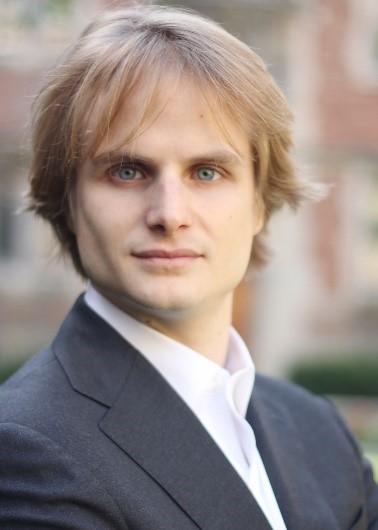 Tommaso Porzio received his Ph.D. in economics with distinction from Yale University in 2016. He is a recipient of the Carl Arvid Anderson Prize Fellowship in Economics. Porzio's research uses methodologies of macroeconomic theory to study core questions of economic development. He is mostly interested in understanding how the economic environments of different countries shape the way in which individuals leverage their innate skills, for example by pairing in production teams or by accumulating additional human capital on the job. In his dissertation, Porzio argued that the possibility of less-developed countries to directly adopt advanced technology may lead to a different way of organizing production. This different organization of production may eventually trap countries into a dual economy with low growth and high inequality. He concludes that a seeming opportunity — technology adoption — may thus hide important challenges. Porzio is going to teach both undergraduate and graduate macroeconomics, together with a graduate course that aims at introducing second-year doctorate students to current literature and advanced topics in macroeconomic development.
Tommaso Porzio received his Ph.D. in economics with distinction from Yale University in 2016. He is a recipient of the Carl Arvid Anderson Prize Fellowship in Economics. Porzio's research uses methodologies of macroeconomic theory to study core questions of economic development. He is mostly interested in understanding how the economic environments of different countries shape the way in which individuals leverage their innate skills, for example by pairing in production teams or by accumulating additional human capital on the job. In his dissertation, Porzio argued that the possibility of less-developed countries to directly adopt advanced technology may lead to a different way of organizing production. This different organization of production may eventually trap countries into a dual economy with low growth and high inequality. He concludes that a seeming opportunity — technology adoption — may thus hide important challenges. Porzio is going to teach both undergraduate and graduate macroeconomics, together with a graduate course that aims at introducing second-year doctorate students to current literature and advanced topics in macroeconomic development.Kaspar Wuthrich, assistant professor
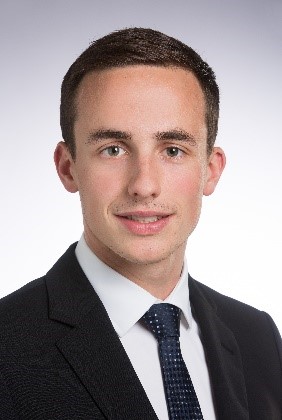 Kaspar Wuthrich received his Ph.D. in eonomics from the University of Bern in 2015, where he was a postdoctoral researcher prior to his appointment at UC San Diego. During his graduate studies, he visited MIT funded by a personal fellowship of the Swiss National Science Foundation. His primary research interests are in theoretical and applied microeconometrics. His work proposes new statistical methods for analyzing the heterogeneous causal effects of interventions such as treatments or policies. Wuthrich will offer graduate and undergraduate courses in econometrics.
Kaspar Wuthrich received his Ph.D. in eonomics from the University of Bern in 2015, where he was a postdoctoral researcher prior to his appointment at UC San Diego. During his graduate studies, he visited MIT funded by a personal fellowship of the Swiss National Science Foundation. His primary research interests are in theoretical and applied microeconometrics. His work proposes new statistical methods for analyzing the heterogeneous causal effects of interventions such as treatments or policies. Wuthrich will offer graduate and undergraduate courses in econometrics.Itzik Fadlon, assistant professor
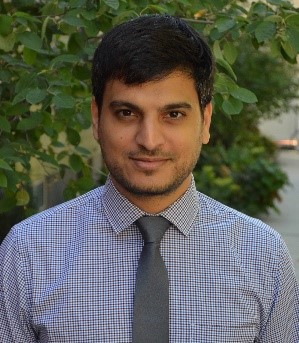 Itzik Fadlon received his Ph.D. in economics from Harvard University in May 2015 and is a faculty research fellow in the program on aging at the National Bureau of Economic Research. His primary fields of interest are public finance, health economics and labor economics. His research to date applies rigorous theory in analyzing the behavior of households, firms and the social planner, and quasi-experimental research designs that use newly available administrative data on labor market behavior and health outcomes. Fadlon has a special interest in addressing issues of health and retirement as they affect households and translate into the design of optimal social policies. His dissertation, titled “Essays on Retirement, Savings, and Health”, was awarded the Outstanding Doctoral Dissertation prize by the National Tax Association. After receiving his Ph.D., Faldon spent a year as a postdoctoral fellow in disability policy research at the National Bureau of Economic Research.
Itzik Fadlon received his Ph.D. in economics from Harvard University in May 2015 and is a faculty research fellow in the program on aging at the National Bureau of Economic Research. His primary fields of interest are public finance, health economics and labor economics. His research to date applies rigorous theory in analyzing the behavior of households, firms and the social planner, and quasi-experimental research designs that use newly available administrative data on labor market behavior and health outcomes. Fadlon has a special interest in addressing issues of health and retirement as they affect households and translate into the design of optimal social policies. His dissertation, titled “Essays on Retirement, Savings, and Health”, was awarded the Outstanding Doctoral Dissertation prize by the National Tax Association. After receiving his Ph.D., Faldon spent a year as a postdoctoral fellow in disability policy research at the National Bureau of Economic Research. Education Studies
Sherice Clarke, assistant professor
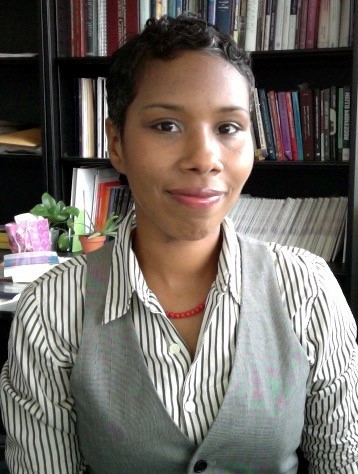 Sherice Clarke received her Ph.D. in education at the Moray House School of Education, University of Edinburgh. She was a research associate and postdoctoral fellow at the University of Pittsburgh’s Learning Research and Development Center. She received the 2012 Gordon Commission fellow. Clarke is the co-principal investigator for the Hong Kong Research Grant Council, and was awarded a two-year grant to test the Classroom Discourse Analyzer with mathematics teachers in mainland China and Hong Kong. She is an international partner with Cambridge Educational Dialogue Research Group. Her research focuses on studying the complex social reality of teaching and learning through dialogue in order to develop solutions that promote educational equity for learners of the greatest need. Clarke’s talents and commitment to transforming education in a diversity society will enrich graduate and undergraduate education in the Department of Education Studies.
Sherice Clarke received her Ph.D. in education at the Moray House School of Education, University of Edinburgh. She was a research associate and postdoctoral fellow at the University of Pittsburgh’s Learning Research and Development Center. She received the 2012 Gordon Commission fellow. Clarke is the co-principal investigator for the Hong Kong Research Grant Council, and was awarded a two-year grant to test the Classroom Discourse Analyzer with mathematics teachers in mainland China and Hong Kong. She is an international partner with Cambridge Educational Dialogue Research Group. Her research focuses on studying the complex social reality of teaching and learning through dialogue in order to develop solutions that promote educational equity for learners of the greatest need. Clarke’s talents and commitment to transforming education in a diversity society will enrich graduate and undergraduate education in the Department of Education Studies.Megan Hopkins, assistant professor
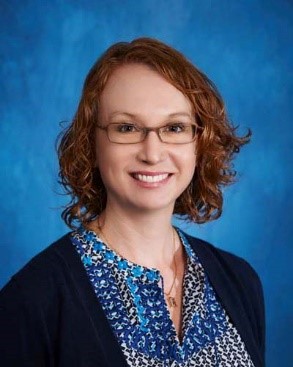 Megan Hopkins received her Ph.D. in education, specializing in urban schooling, at the UCLA in 2011. She completed a postdoctoral fellowship at Northwestern University and held former appointments at Pennsylvania State University and the University of Illinois, Chicago. She was recently named the 2016 National Academy of Education/Spencer postdoctoral fellow. Her scholarship has appeared in Educational Researcher, Educational Policy, Journal of Teacher Education and American Educational Research Journal. She is also co-editor of the volumes “Forbidden Language: English Learners and Restrictive Language Policies” and “School Integration Matters: Research-Based Strategies to Advance Equity.” In 2012, Hopkins received the Dissertation of the Year Award from the Bilingual Education Research Special Interest Group of the American Educational Research Association. She is a member and fellow of the Working Group on ELL Policy. Hopkins is also participating in a research project examining the development of instructional guidance infrastructures for elementary mathematics education, and how these infrastructures facilitate teachers’ interactions and sensemaking around new mathematics curricula. She is also co-principal investigator for a William T. Grant Foundation project focused on understanding how research is used in district instructional decision-making processes that involve external partnerships. Her talents and commitment to teaching and learning will enrich graduate and undergraduate education in the Department of Education Studies.
Megan Hopkins received her Ph.D. in education, specializing in urban schooling, at the UCLA in 2011. She completed a postdoctoral fellowship at Northwestern University and held former appointments at Pennsylvania State University and the University of Illinois, Chicago. She was recently named the 2016 National Academy of Education/Spencer postdoctoral fellow. Her scholarship has appeared in Educational Researcher, Educational Policy, Journal of Teacher Education and American Educational Research Journal. She is also co-editor of the volumes “Forbidden Language: English Learners and Restrictive Language Policies” and “School Integration Matters: Research-Based Strategies to Advance Equity.” In 2012, Hopkins received the Dissertation of the Year Award from the Bilingual Education Research Special Interest Group of the American Educational Research Association. She is a member and fellow of the Working Group on ELL Policy. Hopkins is also participating in a research project examining the development of instructional guidance infrastructures for elementary mathematics education, and how these infrastructures facilitate teachers’ interactions and sensemaking around new mathematics curricula. She is also co-principal investigator for a William T. Grant Foundation project focused on understanding how research is used in district instructional decision-making processes that involve external partnerships. Her talents and commitment to teaching and learning will enrich graduate and undergraduate education in the Department of Education Studies.Linguistics
Eva Wittenberg, assistant professor
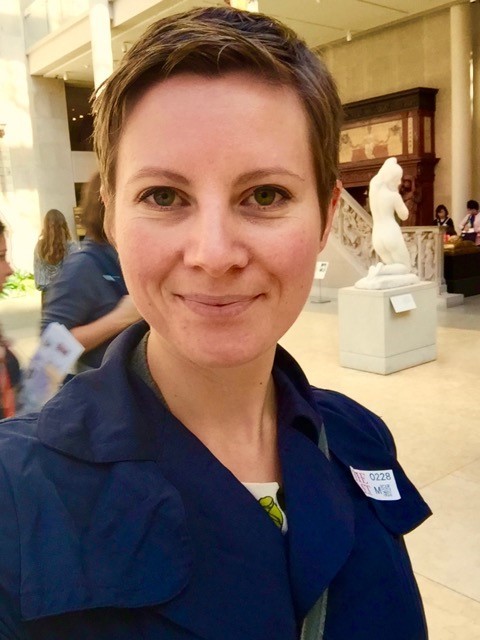 Eva Wittenberg received her Ph.D. in linguistics from the University of Potsdam in 2014, and has been a postdoctoral researcher at UC San Diego in the Center for Research in Language since 2015, funded by a fellowship from the German Academic Exchange Service. Wittenberg specializes in the field of psycholinguistics as applied to syntax, semantics and pragmatics. Her research program is concerned with how speakers process and interpret sentence constructions, and how grammatical choices shape conceptual representations of events, incorporating world knowledge, context and semantics. She uses eye tracking, event-related brain potentials, judgment tasks and other techniques to investigate more precisely how language is represented and processed in the brain. Wittenberg is expected to develop and teach undergraduate and graduate courses in psycholinguistics, syntax, pragmatics, neurolinguistics and experimental methods.
Eva Wittenberg received her Ph.D. in linguistics from the University of Potsdam in 2014, and has been a postdoctoral researcher at UC San Diego in the Center for Research in Language since 2015, funded by a fellowship from the German Academic Exchange Service. Wittenberg specializes in the field of psycholinguistics as applied to syntax, semantics and pragmatics. Her research program is concerned with how speakers process and interpret sentence constructions, and how grammatical choices shape conceptual representations of events, incorporating world knowledge, context and semantics. She uses eye tracking, event-related brain potentials, judgment tasks and other techniques to investigate more precisely how language is represented and processed in the brain. Wittenberg is expected to develop and teach undergraduate and graduate courses in psycholinguistics, syntax, pragmatics, neurolinguistics and experimental methods.Psychology
Emma Geller, assistant teaching professor
Emma Geller received her Ph.D. in cognitive psychology from UCLA in 2016. Her primary research interest is the science of learning and instruction, and her work investigates how students develop deep understanding of concepts in math and science. Her dissertation approached this problem by examining how students learn from instructional videos like those on YouTube channels like Crash Course and Khan Academy. At UCLA, Geller was a highly rated instructor who taught for many courses in the psychology department. She was also part of a team of instructors teaching a year-long interdisciplinary course about the brain, which covered topics as diverse as neuroscience, psychology, philosophy, history, film and literature. As part of this course, she created a freshman seminar that integrated many topics related to her research, including theories of learning and memory, conceptions of expertise, intelligence, and creativity, and evidence-based practices to improve both study strategies and motivation to learn. Dr. Geller will bring her expertise and love for teaching to UC San Diego where she will teach core undergraduate courses in research methods, statistics and cognitive psychology. Her hands-on approach to teaching and genuine care for her students promise to make these courses engaging and rewarding.
Viola Stormer, assistant professor
Viola Stormer received her Ph.D. in psychology from the Humboldt-University of Berlin, Germany, and the Max Planck Institute for Human Development in 2012. She then joined the Vision Sciences Laboratory at Harvard University as a postdoctoral researcher, where she received a Marie Curie fellowship that allowed her to also spend some time at the University Paris Descartes in France. Stormer’s research aims at understanding the cognitive and neural mechanisms of human perception, attention and multisensory processing. She focuses on identifying and characterizing people’s perceptual and cognitive abilities, as well as their capacity limitations. During her Ph.D., she studied how these limitations change in the course of healthy aging, and she continues to be interested in cognitive development across the lifespan. Stormer’s work draws on a variety of methods, including psychophysics, experimental psychology and functional neuroimaging with a particular focus on EEG (electroencephalography). She will teach undergraduate and graduate courses in cognitive neuroscience, perception, multisensory processing and neuroscience methods.
